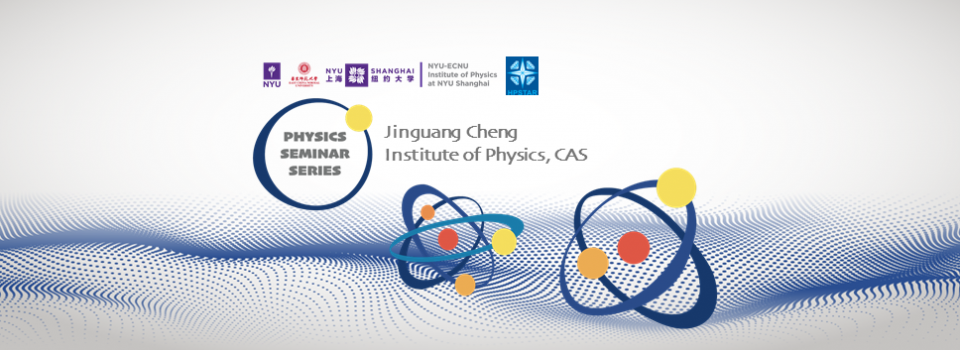
Abstract:
Pressure is a fundamental parameter like temperature that governs the states of matters. On the one hand, the application of high pressure adds a new dimension on top of varying temperature and chemical compositions for materials’ synthesis, and thus can enlarge to a great extent the stability range of several materials systems such as the perovskite and pyrochlore oxides. On the other hand, the application of high pressure provides a clean knob to fine tune the delicate balance of competition interactions so as to access distinct quantum states of matter and exotic phenomena in strongly correlated systems. For example, pressure can induce magnetic quantum critical point, near which the Landau Fermi-liquid behaviors usually break down and unconventional superconductivity frequently takes place due to the presence of strong quantum fluctuations. In this talk, I will give a brief introduction to the high-pressure techniques used for the high-pressure high-temperature (HPHT) syntheses and the high-pressure low-temperature (HPLT) measurements, respectively. Then, I will present some of our recent progresses on both aspects of high-pressure studies: For HPHT syntheses, we have addressed a long-standing issue about the ferromagnetism in the perovskite ruthenates [1] and discovered some novel material systems including an S =1 quantum spin liquid candidate [2], a d-electron heavy-fermion material [3], and a possible Slater insulator system [4]. For HPLT measurements, we discovered superconductivity in CrAs and MnP near their pressure-induced helimagnetic quantum critical point [5, 6], revealed the competing electronic orders and double superconducting domes in the FeSe-based high-Tc superconductors. [7, 8].
[1] PNAS 110, 13312 (2013); [2] PRL 107, 197204 (2011); [3] PRL 111, 176403 (2013); [4] PRL 117, 176603 (2016); [5] NC 5, 5508 (2014); [6] PRL 114, 117001 (2015); [7] NC 7, 12146, (2016); [8] NC 9, 380 (2018).
Biography:
Jinguang Cheng is a Professor in the Institute of Physics, Chinese Academy of Sciences (IOP, CAS). He obtained his B.S. and M.S. in physics from Harbin Institute of Technology in 2003 and 2005, and Ph.D. in Materials Science from University of Texas at Austin (UTA) in 2010. Following two-year postdoctoral research at UTA, he spent another two years as a JSPS fellow in the Institute for Solid State Physics, University of Tokyo. He joined IOP CAS in 2014 and became the ground leader of EX6 in the Laboratory of Extreme Conditions Physics since then. His current research interest focuses on the exploration of emergent quantum materials and phenomena under high-pressure extreme conditions. He has published over 160 peer-reviewed journal papers and received the Sir Martin Wood China Prize in 2016.
Seminar by the NYU-ECNU Institute of Physics at NYU Shanghai


